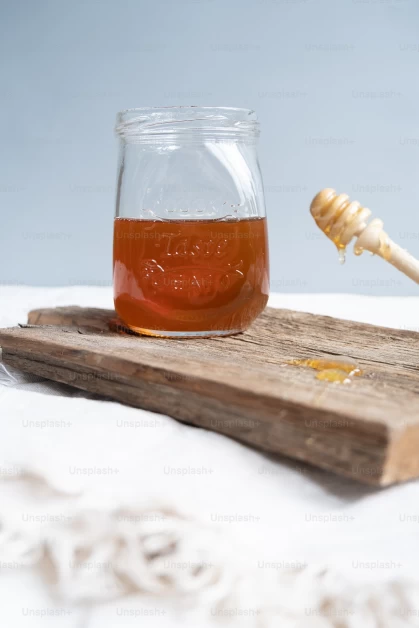Table of Contents
Introduction
Manuka honey has been known for its many health benefits, and one area where it has shown promise is in the treatment of pneumonia. In this article, we will explore the potential benefits of using manuka honey for pneumonia and how it may help improve symptoms and promote healing. We will also discuss some studies that support these claims and provide tips on how to incorporate manuka honey into your pneumonia treatment regimen.
The Role of Inflammation in Pneumonia
Pneumonia is a respiratory infection that causes inflammation in the lungs. This inflammation can lead to symptoms such as coughing, chest pain, and difficulty breathing. It is important to manage this inflammation in order to alleviate symptoms and promote healing.
Inflammatory Cytokines in Pneumonia
Inflammation in pneumonia is primarily caused by the release of inflammatory cytokines, which are small proteins that play a key role in cell signaling. These cytokines can trigger an immune response and cause inflammation in the lungs.
A study conducted in 2003 investigated the levels of chemokines, a type of cytokine, in the lung tissue of patients with pneumonia. The researchers found that chemokines produced locally in the lungs may be involved in the development and progression of pneumonia. This suggests that targeting these inflammatory cytokines may help reduce inflammation and improve symptoms in patients with pneumonia.
Oxidative Stress and Tissue Damage in Pneumonia
Oxidative stress, which is an imbalance between the production of free radicals and the body’s ability to neutralize them, has also been implicated in tissue damage associated with pneumonia. In a 2006 research study, scientists investigated the role of inflammation and oxidative stress in the development of pneumonia. They found that the expression of various cytokines in the lung tissue causes oxidative stress by inducing the infiltration and activation of inflammatory cells, as well as by increasing the production of reactive oxygen species. This suggests that reducing oxidative stress may help protect the lungs from further damage and aid in healing.
The Antibacterial Properties of Manuka Honey
Manuka honey, derived from the nectar of the Manuka tree in New Zealand, has been shown to possess powerful antibacterial properties. This makes it an attractive option for the treatment of respiratory infections such as pneumonia.
The Manuka Honey and Pneumonia Connection
The antibacterial properties of manuka honey make it effective against a variety of bacteria, including those that can cause pneumonia. A study conducted in 2011 found that manuka honey exhibited significant antibacterial activity against both common and antibiotic-resistant strains of bacteria that cause respiratory infections. This suggests that manuka honey may be a valuable addition to conventional antibiotic treatments for pneumonia.
Manuka Honey and Biofilm Formation
Biofilms are communities of bacteria that can form on the surfaces of the lungs in patients with pneumonia. These biofilms can be difficult to eradicate and may contribute to treatment failure. However, manuka honey has been shown to inhibit the formation of biofilms and disrupt existing biofilms. A study published in 2015 demonstrated that manuka honey was effective in preventing biofilm formation by pneumonia-causing bacteria, and it also inhibited the growth of existing biofilms. This suggests that manuka honey may help prevent recurrent infections and improve treatment outcomes in patients with pneumonia.
Manuka Honey and Immune System Support
In addition to its antibacterial properties, manuka honey has also been shown to support the immune system. A healthy immune system is essential for fighting off infections, including pneumonia. Manuka honey contains antioxidants and other bioactive compounds that can help boost the immune system and improve the body’s ability to defend against pathogens. A study published in 2012 found that manuka honey increased the production of cytokines and immune cells involved in the immune response. This suggests that manuka honey may help strengthen the immune system and enhance the body’s ability to fight off pneumonia.
How to Use Manuka Honey for Pneumonia
If you are considering using manuka honey as a complementary treatment for pneumonia, it is important to do so under the guidance of a healthcare professional. Here are some tips on how to incorporate manuka honey into your pneumonia treatment regimen:
-
Choose a high-quality manuka honey with a high UMF (Unique Manuka Factor) rating. The UMF rating indicates the quality and potency of the honey’s antibacterial properties. Aim for a honey with a UMF rating of 10 or higher.
-
Consult with your healthcare provider about the appropriate dosage and frequency of manuka honey consumption. They will take into account your specific health condition and other medications you may be taking.
-
Manuka honey can be consumed orally or applied topically to the chest area. If you choose to consume it orally, you can take it straight from the spoon or mix it with warm water or herbal tea. If you choose to apply it topically, make sure to clean the chest area thoroughly before applying a thin layer of honey.
-
It is important to note that while manuka honey may have potential benefits for pneumonia, it should not be used as a substitute for conventional medical treatments. Always follow the advice of your healthcare provider and continue to take any prescribed medications as directed.
Conclusion
In conclusion, manuka honey shows promise as a complementary treatment for pneumonia due to its antibacterial properties, ability to inhibit biofilm formation, and support for the immune system. However, further research is needed to fully understand its effectiveness and determine the optimal dosage and administration method. If you are considering using manuka honey for pneumonia, it is important to consult with a healthcare professional to ensure it is safe and appropriate for your individual needs. With proper guidance, manuka honey may offer additional support in managing symptoms and promoting healing in pneumonia patients.

